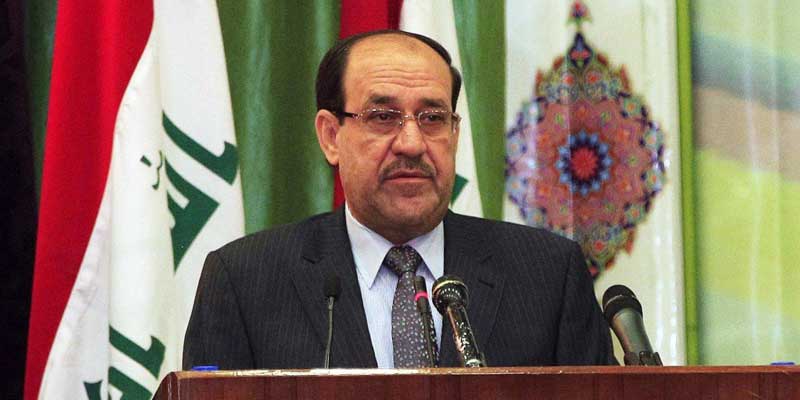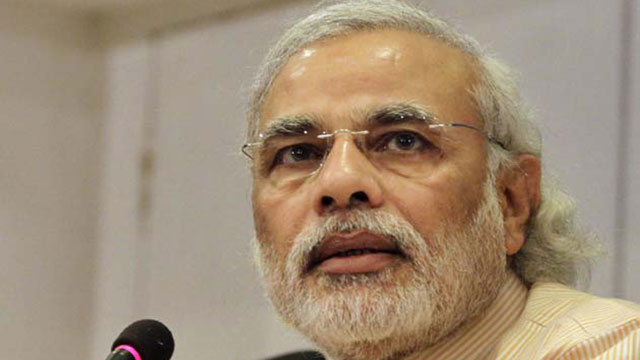India has thrown its weight behind Iraq at a time when its over 18,000 nationals are in danger in the country. Also, it may draw ire from Saudi Arabia.
On Monday, the Ministry of External Affairs finally came up with a statement on the situation in Iraq. This happened as the news of 46 Indian nurses being trapped in the violence-hit Tirkit town in the country flashed on the TV screens.
The MEA statement, titled Security Situation in Iraq, thus read: “The Government of India is deeply concerned with deteriorating security situation in Iraq, resulting out of recent attacks and taking over of some cities, including of Mosul and Tikrit by terrorist outfits since 8 June 2014, which is a direct threat to the security and territorial integrity of Iraq. The Government of India strongly condemns such attacks and firmly stands by the Government and the people of Iraq in their fight against international terrorism and in their efforts to preserve the unity and territorial integrity of the friendly country of Iraq.”
“India remains strongly committed to the emergence of a stable, peaceful, united and democratic Iraq, which is in the interest of regional and global peace and security.”
“The safety and security of the Indian nationals currently in Iraq remains a matter of serious concern for the Government of India. An advisory has been issued on 15 June, 2014 giving the details of a 24 hour helpline set up by the Indian Embassy in Baghdad for assistance of Indian nationals there.”
While the Indian stand on the issue is quite bold, it is also a tight-rope walk for the country as the Iraq issue has become a zero-sum-game in the diplomatic circuits.
Iraq, it should be noted, is a Shia-ruled country. The current situation in the country is essentially a war between Sias and Sunnis. The al-Qaeda affiliated Sunni terrorists of ISIS, acronym for the Islamic State of Iraq and the Levant (the final letter ‘S’ in the acronym standing for Arabic word al-Sham which can mean the Levant, Syria or even Damascus but in the context of the global jihad it refers to the Levant), have taken hold of three major cities – Mosul, Tikrit and Tal Afar – apart from retaking many other towns.
It is being said that the Sunni militants are only 70 kms away from the city of Baghdad.
The organisation is led by Abu Bakr al-Baghdadi, a former al-Qaeda terrorist who joined the outfit after the 2003 US-led invasion of Iraq. ISIS was disavowed by al-Qaeda.
By throwing its weight behind Iraq, India has indirectly lend its support to all Shia-ruled countries which includes Iran. Currently, Iran is cosying up to the idea of being close to US and has vowed its support to the latter for controlling the situation in Iraq. Tehran certainly won’t like Iraq to go back to the Saddam Hussein days when the Shia-dominated country was ruled by Sunnis for decades and this provides India with a basket of opportunities.
But it may draw ire from the Saudi Arabia as Iran is now being seen as the competitor of the former which is a major Sunni nation.
In addition to that there is question of thousands of Indians working in Iraq and Saudi. Till the latest news, 40 Indians working on a project in Mosul have been kidnapped and the hand of ISIS in this is suspected. Similarly, Saudi hosts thousands of Indians and its recent laws have been against the working Indian nationals in the country.
Also, if the ISIS manages to topple the Maliki government and capture Baghdad it will be an inspiration for the many splinter groups of al-qaeda in the region and world over.
And last, but not the least, it will affect every household in the country. Fifty-seven per cent of India’s crude oil imports come from states directly threatened by the looming chaos in West Asia — Saudi Arabia, Iran, the United Arab Emirates, Kuwait and Iraq itself. Long wars in the region could disrupt supplies and raise prices, undermining India’s hopes of an economic revival.





